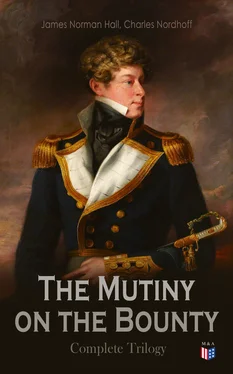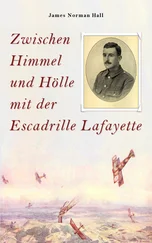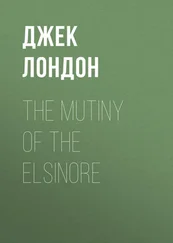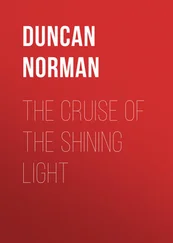“Take a caulk, Mr. Byam,” he said kindly. “Take a caulk! All’s quiet to-night. I’ll see that you are waked if we need you.”
I chose a place in the shadow of the bitts, just abaft of the main hatch, and lay down on deck, but, though I yawned with heavy eyes, it was long before sleep came to me. When I awoke, the grey light of dawn was in the East.
We had drifted some distance to the west during the night, and now the ship lay off the valley of Vaipoopoo, from which runs the river that empties into the sea at the tip of Point Venus, the most northerly point of Tahiti Nui. It was here that the Dolphin, Captain Wallis, had approached the newly discovered land, and here on this long, low point Captain Cook had set up his observatory to study the transit of the planet which gave the place its name. Far off in the interior of the island, its base framed in the vertical cliffs bordering the valley, rose the tall central mountain called Orohena, a thin sharp pinnacle of volcanic rock which rises to a height of seven thousand feet and is perhaps as difficult of ascent as any peak in the world. Its summit was now touched by the sun, and as the light of day grew stronger, driving the shadows from the valley and illuminating the foothills and the rich smiling coastal land, I fancied that I had never gazed on a scene more pleasing to the eye. The whole aspect of the coast about Matavai Bay was open, sunny, and hospitable.
The entrance to the bay bore southwest by west, little more than a league distant, and a great number of canoes were now putting out to us. Most of them were small, holding only four or five persons; strange-looking craft, with an outrigger on the larboard side and a high stern sweeping up in a shape almost semicircular. There were two or three double canoes among them, each holding thirty or more people. The Indian craft approached us rapidly. Their paddlers took half a dozen short quick strokes on one side, and then, at a signal from the man astern, all shifted to the other side. As the leading canoes drew near, I heard questioning shouts: “Taio? Peritane? Rima?” which is to say: “Friend? British? Lima?” In the latter case, they were asking whether the Bounty was a Spanish ship from Peru. “Taio!” shouted Bligh, who knew some words of the Tahitian language. “Taio! Peritane!” Next moment the first boatload of Indians came springing over the bulwarks, and I had my first glimpse at close quarters of this far-famed race.
Most of our visitors were men—tall, handsome, stalwart fellows, of a light copper colour. They wore kilts of figured cloth of their own manufacture, light fringed capes thrown over their shoulders and joined at the throat, and turbans of brown cloth on their heads. Some of them, naked from the waist up, displayed the arms and torsos of veritable giants; others, instead of turbans, wore on their heads the little bonnets of freshly plaited coconut leaves they call taumata. Their countenances, like those of children, mirrored every passing mood, and when they smiled, which was often, I was astonished at the whiteness and perfection of their teeth. The few women who came on board at this time were all of the lower orders of society, and uncommonly diminutive as compared with the men. They wore skirts of white cloth falling in graceful folds, and cloaks of the same material to protect their shoulders from the sun, draped to leave the right arm free, and not unlike the toga of the Romans. Their faces were expressive of good nature, kindness, and mirth, and it was easy to perceive why so many of our seamen in former times had formed attachments among girls who seemed to have all the amiable qualities of their sex.
Mr. Bligh had given orders that the Indians were to be treated with the greatest kindness by everyone on board, though watched closely to prevent the thefts to which the commoners among them were prone. As the morning breeze freshened and we worked in toward the entrance with yards braced up on the larboard tack, the hubbub on the ship was deafening. At least a hundred men and a quarter as many women overran the decks, shouting, laughing, gesticulating, and addressing our people in the most animated manner, as if taking for granted that their unintelligible harangues were understood. The seamen found the feminine portion of our visitors so engaging that we had difficulty in keeping them at their stations. The breeze continued to freshen, and before long we sailed through the narrow passage between the westerly point of the reef before Point Venus and the sunken rock called the Dolphin Bank, on which Captain Wallis so nearly lost his ship. At nine in the forenoon we dropped anchor in Matavai Bay, in thirteen fathoms.
A vast throng of visitors set out immediately from the beach in their canoes, but for some time no persons of consequence came on board. I was joking with a party of girls to whom I had given some trifling gifts, when Mr. Bligh’s servant came on deck to tell me that the captain desired to see me below. I found him alone in his cabin, bending over a chart of Matavai Bay.
“Ah, Mr. Byam,” he said, motioning me to sit down on his chest. “I want a word with you. We shall probably lie here for several months while Mr. Nelson collects our young breadfruit plants. I am going to release you from further duties on board so that you may be free to carry out the wishes of my worthy friend, Sir Joseph Banks. I have given the matter some thought and believe that you will best accomplish your task by living ashore amongst the natives. Everything now depends on your choice of a taio, or friend, and let me advise you to go slowly. Persons of consequence in Tahiti, as elsewhere, do not wear their hearts on their sleeves, and should you make the mistake of choosing a friend among the lower orders of their society, you will find yourself greatly handicapped in your work.”
He paused and I said, “I think I understand, sir.”
“Yes,” he went on. “By all means go slowly. Spend as much time as you wish on shore for a day or two, and when you have found a family to your liking inform me of the fact, so that I may make inquiries as to their standing. Once you have settled on a taio you can move your chest and writing materials ashore. After that I expect to see no more of you except when you report your progress to me once each week.”
He gave me a curt but friendly nod, and perceiving that the interview was at an end, I rose and took leave of him. On deck, Mr. Fryer, the master, beckoned me to him.
“You have seen Mr. Bligh?” he asked, raising his voice to make the words audible in the din. “He informed me last night that on our arrival here you were to be relieved of duty on board the ship. There is nothing to fear from the Indians. Go ashore at any time you wish. You are free to make gifts of your own things to the Indians, but remember—no trading. The captain has placed all of the trading in the hands of Mr. Peckover. You are to make a dictionary of the Indian tongue, I understand?”
“Yes, sir—at the desire of Sir Joseph Banks.”
“A praiseworthy task—a praiseworthy task! Some slight knowledge of the language will no doubt be of great service to future mariners in this sea. And you’re a lucky lad, Mr. Byam, a lucky lad! I envy you, on my word I do!”
At that moment a double canoe, which had brought out a handsome gift of pigs from some chief ashore, cast off from the ship. I was all eagerness to set foot on land. “May I go with those people if they’ll have me?” I asked the master.
“Off with you, by all means. Give them a hail.”
I sprang to the bulwarks and shouted to catch the attention of a man in the stern of one of the canoes, who seemed to be in a position of authority. As I caught his eye, I pointed to myself, then to the canoe, and then to the beach a cable’s length away. He caught my meaning instantly and shouted some order to his paddlers. They backed water so that the high stern of one of the canoes came close alongside, rising well above the Bounty’s bulwarks. As I sprang over the rail and slid down the hollowed-out stern into the canoe, the paddlers, glancing back over their shoulders and grinning at me, raised a cheer. The Indian captain gave a shout, a score of paddles dug into the water simultaneously, and the canoe moved away toward the land.
Читать дальше











